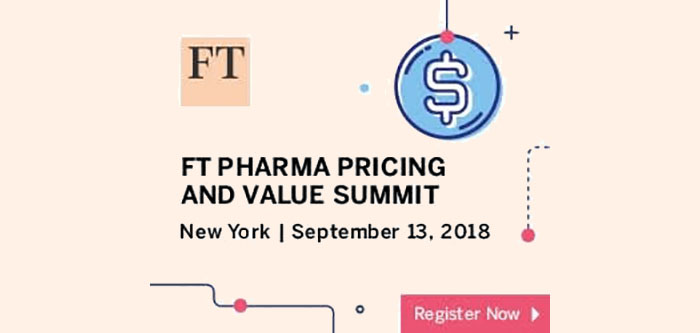FT Health: Climate change is a public health problem

Simply sign up to the Climate change myFT Digest -- delivered directly to your inbox.
Register here to get FT Health by email for free each Friday
The extreme weather across much of the globe coincided this week with a clutch of reports warning of the impact on health of heatwaves and climate change.
Deaths from severe heatwaves will increase dramatically over the next few decades said one, while another estimated an additional 1.5m people would die each year from climate change, if emissions trends continue, even after efforts to mitigate their impact. Separate US data this week confirmed 2017 was the third warmest year on record, after 2016 and 2015.
Tropical areas — especially poorer countries — are particularly at risk, but the problem is a worldwide one. Weather and heatstroke-related illnesses have killed thousands and left many sick in countries ranging from India to Greece, Canada and Japan . Even normally temperate Britain could see heat-related deaths triple by 2050, according to a separate study.

Climate change is increasingly seen as a public health problem rather than a pure environmental concern, creating not just a warming planet, but — as a new research collection emphasises — greater risks of anything from air pollution to infectious diseases.
The medical establishment is starting to take action. The Royal College of General Practitioners — a member of the UK Health Alliance on Climate Change — this week said it would end investment in fossil fuels, a key driver of climate change, citing estimates that Britain would lose 50m years of life between 2011 and 2154 if the effects are not mitigated.
Expect such actions to snowball as health authorities act on what The Lancet calls “a true planetary health emergency”.
Three questions
We spoke to Pierre Meulien, director of the EU Innovative Medicines Initiative, which last month celebrated its 10th anniversary.
What have been IMI’s achievements so far?
We have created new ecosystems where different stakeholders can come together and share their data and knowledge, which the EU research commissioner called “radical collaboration”. We have fostered a research output of 3,000 publications which are cross-sectoral and have high impact. Our European lead factory has seven pharmaceutical companies pooling their compound libraries, which were previously their most protected asset. That’s a game-changer.
What did you think of the commission’s evaluation of IMI?
If the expectation was that we would produce new cures for cancer, Alzheimer’s and antimicrobial resistance, it was a little bit stretched. We’re trying to accelerate the process. But it takes 15-20 years to get to implementation. We have helped offer improvements for patients with COPD and brought companies together to share data around Alzheimer’s.
What do you need to improve in the future?
Convergence with technology is happening right now. Medtech and diagnostic are coming together and we will need to integrate them into the new ecosystem. We’ve not been good collectively at articulating the economic value for health systems of the technologies we are developing. Our next phase will be about how we impact systems by bringing the private sector together with the public sector, regulators, health technology assessment and payers.
FT conference
FT Pharma Pricing and Value Summit New York September 13. Details and tickets here. Discount of 20% for FT Health subscribers using code FTHEALTH.

Chartwatch
The price of pollution An ingenious new interactive from the UK's Office for National Statistics allows users to see how much air pollution has been removed by vegetation in their local area and the ensuing amount saved in healthcare costs. (ONS)

News round-up
Ebola hopes and fears Despite widespread acclaim for the World Health Organization’s response to Ebola in the Democratic Republic of Congo, a new outbreak in an area hit by armed conflict is causing great concern. A new species of the virus has appeared in Sierra Leone. (The Hill, Guardian, Stat)
TB trouble Médecins Sans Frontières, the medical humanitarian organisation, accused the US of hampering developing countries' efforts to develop lower-cost generic drugs for tuberculosis. The WHO has set a target of cutting TB deaths by 95 per cent by 2035. A pioneering new treatment for latent TB could help. (Devex, Guardian)
Hepatitis struggle World Hepatitis Day on July 28 highlighted the lack of access to testing and treatment for viral hepatitis B and C, which affect 325m people. Mongolia is one region showing impressive progress. Opioid abuse is a real threat to attempts to curtail the disease. (WHO, The Conversation)

'Stealth campaign' against Obamacare Despite publicly taking a neutral position on President Trump's attempts to scupper his predecessor's healthcare reforms, the US pharma industry secretly spent millions on building support for repeal. Some of the states taking legal action to end Obamacare have the sickest populations in the country. (NYT/Kaiser, Vice audio)
Breastfeeding battles A WHO/Unicef report said three out of five babies were not breastfed within their first hour of birth, putting them at higher risk of death and disease. The report follows accusations that the US tried to block pro-breastfeeding moves at the UN. (WHO, Telegraph)
British biosecurity The UK published its first biosecurity strategy, detailing plans to protect Britons from the risk of significant disease outbreaks. “Tier One” risks include events such as flu pandemics and antimicrobial resistance, while “Tier Two” includes deliberate biological attacks. (Home Office)
Drug prices US pharma executives say price gouging is limited to a few bad actors such as Martin Shkreli, the convicted fraudster who raised the price of an Aids and cancer medicine by more than 5,000 per cent. In truth, the practice is rife, says the FT's David Crow. This analysis show how prescription drug spending is allocated in the US supply chain. (FT, Health Affairs)

Brexit blues A UK health regulator said a “no-deal” Brexit could hit the supply of insulin for diabetics. The pharma industry warned of plans to stockpile medicines, while Sanofi and Novartis revealed their contingency plans. British doctors said any kind of Brexit would harm the country's health. (Channel Four Fact Check, Health Service Journal, The Independent, FT)
Life support ruling UK doctors will no longer need court permission to withdraw life support for patients in a permanent vegetative or minimally-conscious state. Court cases can take about nine months and sometimes lead to inappropriate treatment continuing by default. (BMJ)
Healthier airports Noise, fumes, stress and overcrowding can make airports fundamentally unhealthy places for travellers and local people alike. But imaginative planning could turn them into “engines of health”. (WHO)
‘Epidemics’ of crime Cities such as Glasgow and Chicago that treat violent incidents including shootings and stabbings as a public health problem have been hugely successful. Some hospitals are using specialist youth workers to help combat the cycles of violence. (Mosaic, The Conversation)
Sick stories Being ill is inherently theatrical. Can drama be an effective way of sharing narratives of illness? (Mosaic)
Doctors and politics A rare survey of political opinion said UK doctors were mostly left-leaning and liberal, strongly support remaining in the EU and critical of too much NHS-funded private sector provision in their medical practices. (Journal of Epidemiology and Community Health)

Best from the journals
The drugs don't work As the number of bodies working against antimicrobial resistance proliferates, the role of the WHO in co-ordinating efforts is ever more important. In the US there are signs that growth in antibiotic prescribing is slowing, while in the UK the farming industry is also making progress. (The Lancet, BMJ, Ruma)
Child health A discussion of how families and communities can improve child health in poorer countries and how WHO/Unicef’s “Integrated Management of Childhood Illness” has fared since its launch in 1997. (BMJ)
Air pollution Even low levels of pollution that meet current air quality standards can affect the heart, says a new study, making a strong case for tighter controls. (Circulation)
Containing malaria How health workers in south-east Asia are fighting to stop the spread of drug-resistant strains of the malaria parasite. In the US there is guarded optimism around a new single-shot treatment. (Nature, NPR)
The costs of outbreaks A new study quantifies the public health costs of dealing with a measles outbreak. A single traveller returning to New York in 2013 made 58 people sick — most of them unvaccinated — and cost the city's health department almost $400,000. (Jama)
Opioid overuse The use of opioids in the US has not dropped over the past decade despite increased publicity of addiction and overdoses. Patients had a higher average daily dose in 2017 than in 2007, and use was particularly high among those with a disability. (BMJ)
Reporting suicide With at least 800,000 deaths each year, suicide is a major public health problem. A media study showed irresponsible news reporting could lead to cases increasing. (Canadian Medical Association Journal)
Be wary of wearables The medical wearables business is booming, but with so few devices formally validated we know very little about how well they work or if they deliver useful information. (Frontiers in Psychology)
Podcast of the week
Tackling obesity We discuss the latest UK government proposals with Tim Rycroft, of the UK Food and Drink Federation, and Graham MacGregor, a professor of cardiovascular medicine and chair of campaign groups Action on Sugar and Action on Salt. (FT, 15m)
Join the debate
FT Health is free to read — please forward and encourage others to register here
Contact us via Twitter, Facebook, LinkedIn or email health@ft.com
Previous edition: Act now to reinvigorate efforts on Aids
Latest news at www.ft.com/health and Twitter @FTHealth
Final thought
Gender bias Women have long been excluded from biomedical studies, leading to less effective treatment. Can new research techniques correct these historic health disadvantages? (FT)
Comments